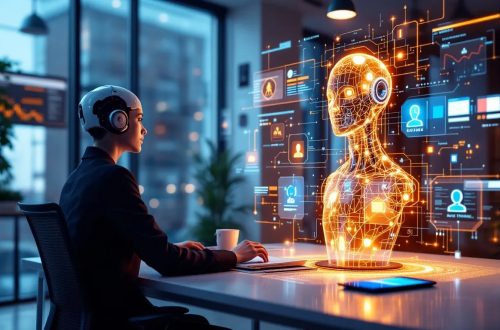In the 21st century, we find ourselves in the midst of a knowledge revolution that is reshaping the way we live, work, and interact with the world. This revolution is driven by the rapid advancement of technology, the internet, and the democratization of information. As our world becomes increasingly interconnected and complex, our ability to adapt to this changing landscape becomes paramount. In this blog, we’ll explore the أرض المعرفة revolution and how we can adapt to thrive in this ever-evolving environment.
The Age of Information
We are living in an age where information is more accessible than ever before. The internet has become a vast repository of knowledge, enabling us to learn, share, and connect with people and ideas from around the world. In just a few clicks, we can access a wealth of information, from academic research to cooking recipes, and from DIY tutorials to breaking news. The sheer volume of information available to us is staggering, and it continues to grow at an exponential rate.
This unprecedented access to information has transformed the way we acquire knowledge. Traditional education, while still vital, is no longer the sole source of learning. Lifelong learning has become the norm, as individuals must constantly adapt to stay relevant in a fast-paced, ever-changing job market.
Adaptability is the New Currency
In this knowledge revolution, adaptability is the new currency. The skills and knowledge that were once sufficient for a lifelong career are now often obsolete within a few years. To succeed in this dynamic environment, we must embrace a growth mindset and a willingness to learn continuously. Here are some key ways to adapt effectively:
- Lifelong Learning: Commit to ongoing learning and self-improvement. Online courses, webinars, and educational platforms can help you acquire new skills and stay up-to-date in your field.
- Critical Thinking: With vast amounts of information available, critical thinking is crucial to separate fact from fiction. Develop your ability to evaluate sources and analyze information critically.
- Embrace Change: Be open to change and innovation. The ability to adapt to new technologies and methods is a valuable skill in the knowledge revolution.
- Networking: Build a strong professional network. Connecting with others in your field can provide insights, support, and opportunities for collaboration.
- Problem-Solving: Develop your problem-solving skills. In a rapidly changing world, the ability to find creative solutions is highly valuable.
- Diversity and Inclusion: Embrace diversity and inclusion. Different perspectives and backgrounds can lead to innovative solutions and a broader understanding of the world.
- Balance Digital and Physical Worlds: While the digital realm is vital, remember to balance it with real-world experiences, human connections, and self-care.
The Role of Technology
Technology is at the heart of the knowledge revolution. It has not only provided us with unprecedented access to information but also created new opportunities and challenges. Automation, artificial intelligence, and machine learning are transforming industries and changing the nature of work. While some jobs may be automated, new roles and industries are emerging.
To adapt to this technological landscape, consider the following:
- Digital Literacy: Develop a strong foundation in digital literacy to navigate the digital world effectively.
- Reskill and Upskill: Be prepared to reskill or upskill to remain relevant in your field or explore new opportunities.
- Entrepreneurship: Consider entrepreneurial endeavors, as technology has made it easier to start businesses and reach a global audience.
- Ethical Considerations: Stay informed about the ethical implications of technology, as it is essential to ensure that innovation benefits humanity.
The knowledge revolution has fundamentally altered the way we live and work. To thrive in this changing world, we must prioritize adaptability and continuous learning. Embracing the opportunities and challenges brought by the digital age is crucial for personal and professional growth. As we navigate this knowledge-driven landscape, we must remember that the ability to adapt is the key to success in the 21st century.





